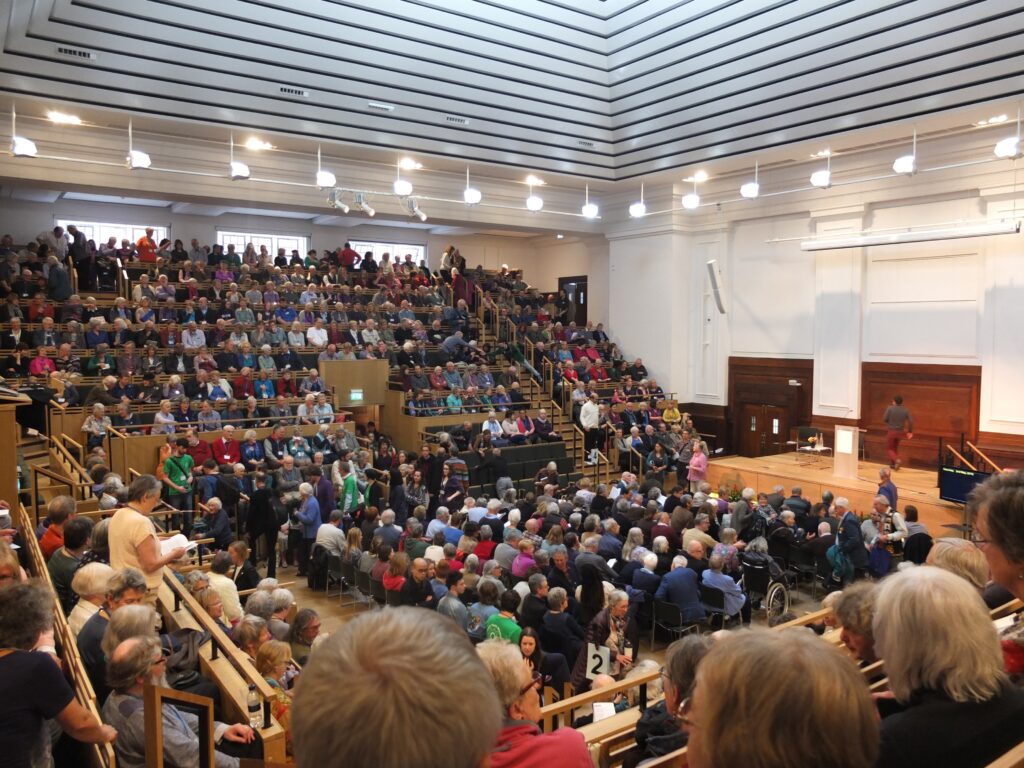Laurie Michaelis
I don’t respond particularly well to people trying to influence me. I tend to want to find my own way and I’m not good at going along with a group. I was the ‘contrary’ child in our family although I didn’t know what that meant at the time.
Working on climate change, I often come across people who are trying to influence others – whether to agree with some point of view, change their lifestyles, or join a movement. And of course, an effective response to climate change would require some kind of collective action. Some years ago I got interested in the ways people make choices and take action together, rather than following a leader. It seemed to me that some of the cutting edge thinking in collective engagement and change was exemplified by long-standing Quaker practices. In 2002, I started the project that became the Quaker charity Living Witness (https://www.livingwitness.
I can’t say Living Witness has been very successful – that may just be down to my poor organisation and leadership. Other Friends have set up a variety of climate-related initiatives, some of which are thriving. But despite the Yearly Meeting’s 2011 commitment to become a ‘low carbon sustainable community’, we have not found unity in our understanding of what that might mean, or how it might be achieved.

Since 2017 I’ve been more involved with other organisations and movements that use Quaker-inspired structures and processes, like ‘consent-based’ decision making. I wondered what I could learn or offer. I don’t think they do much better than Quakers with the search for unity in their climate action.
In her 1994 Swarthmore Lecture, Being Together, Margaret Heathfield asks whether George Fox was right that: ‘if we all “take heed to the promptings of love and Truth” in our hearts, and live in the Light, we will all be united in our perception of the will of God.’ She concludes that we cannot both follow the promptings in our own hearts and find unity – and that complex and difficult decisions usually require strong leadership by an individual or small group. But to me there are a couple of ingredients missing from her characterisation of the Quaker recipe for unity.
First, Advices and Queries 1, which was adopted at that 1994 Yearly Meeting, speaks of the Light showing us our darkness and bringing us to new life. So there is an element of willingness to let go of something and be transformed. Second, to me the Quaker commitment to ‘answer that of God in every one’ suggests being willing to be guided by the promptings of love and truth in others’ hearts too.
Doing both of these well is probably dependent on spending quite a lot of time together, so that we can come to recognise when our own darkness is being mirrored, and absorb the ways God is speaking to us through each other. Something to look forward to, perhaps.
| Previous Article | Next Article |
Back to August 2021 Newsletter Main Page
Forty-Three Newsletter • Number 508 • August 2021
Oxford Friends Meeting
43 St Giles, Oxford OX1 3LW
